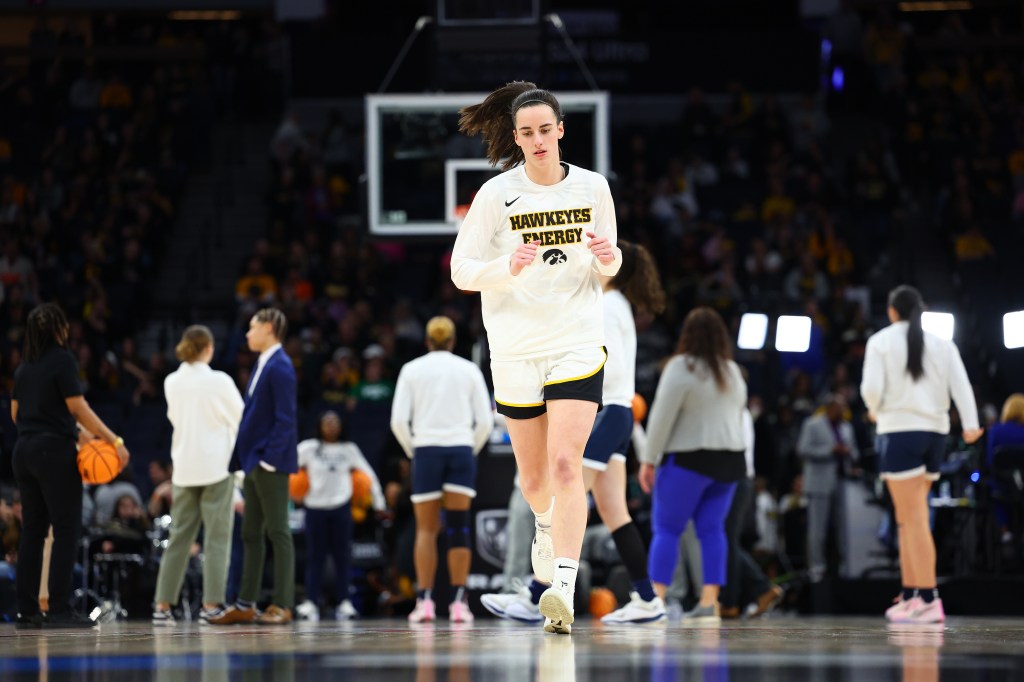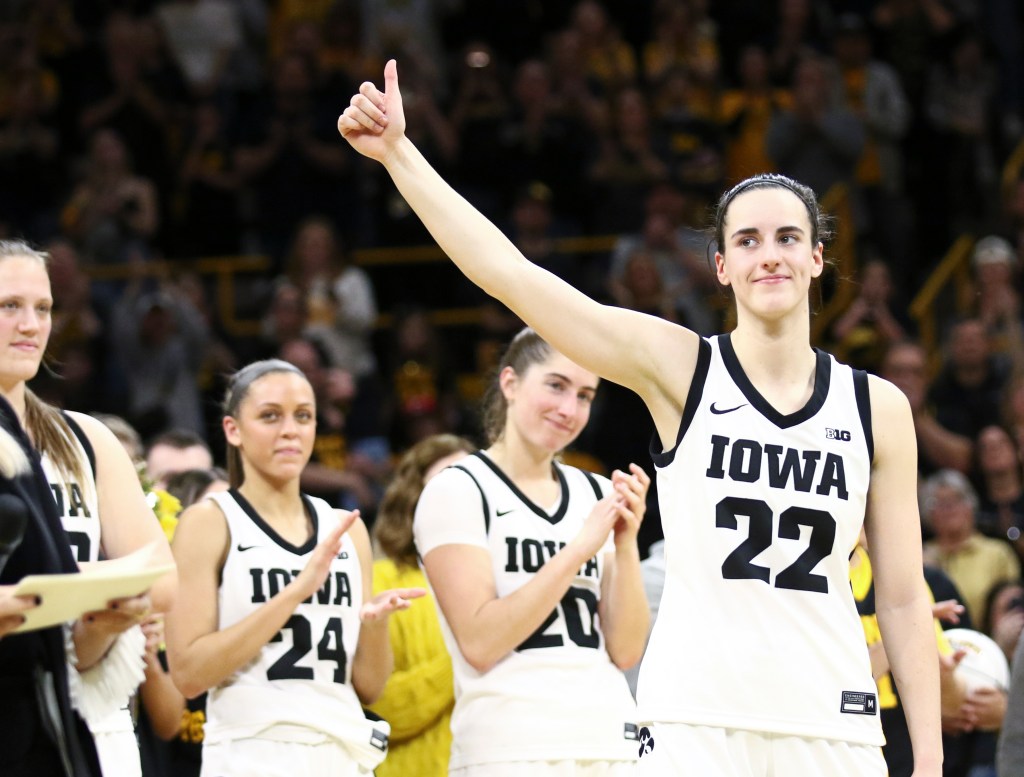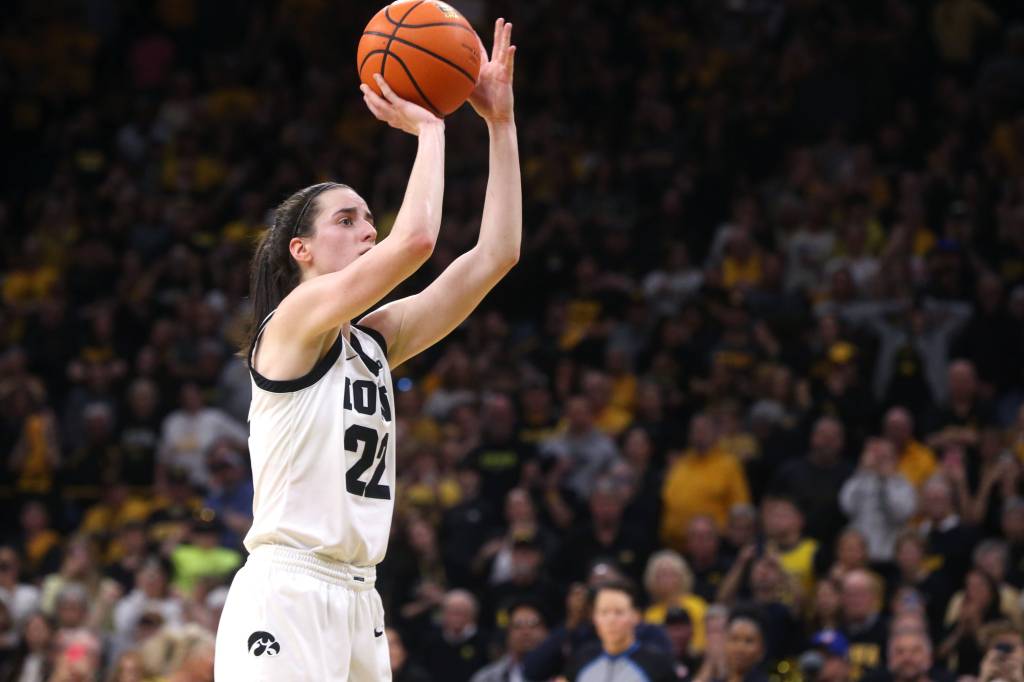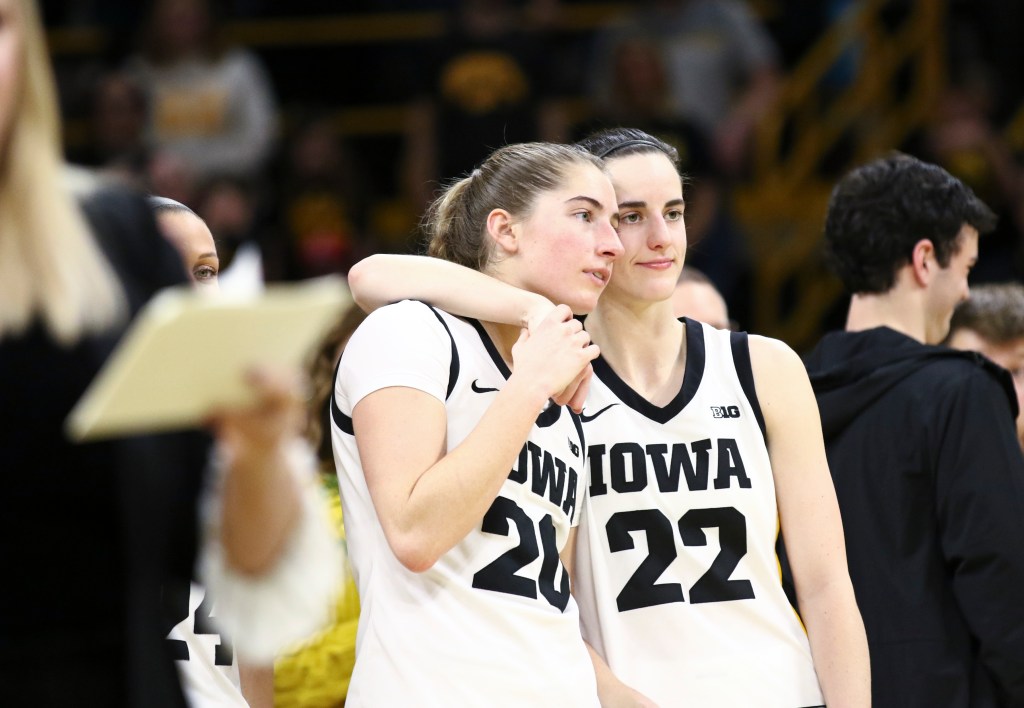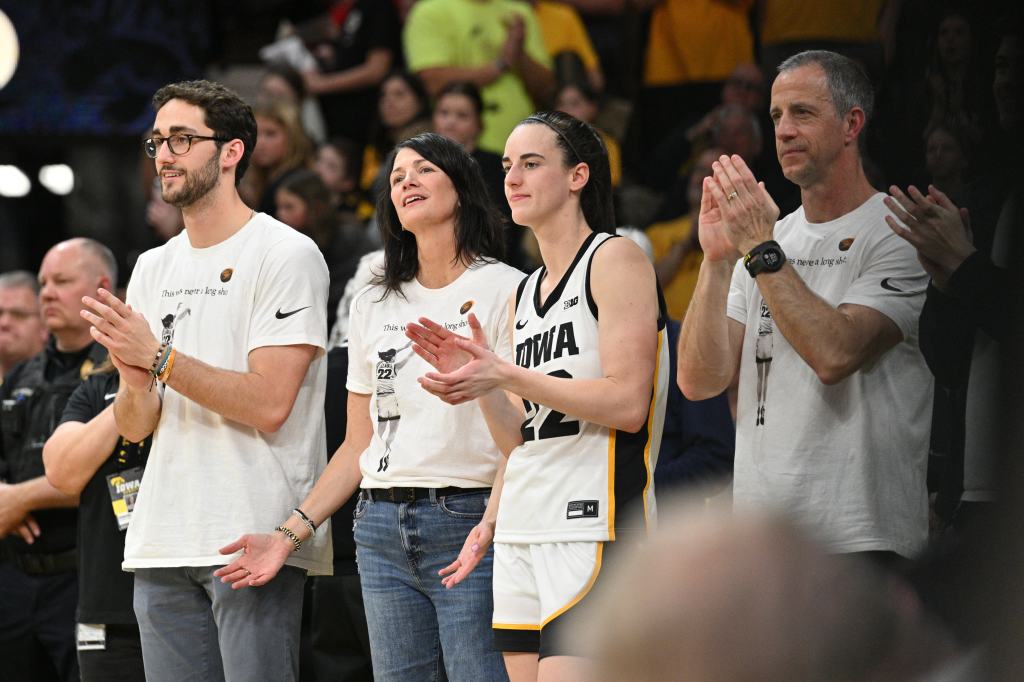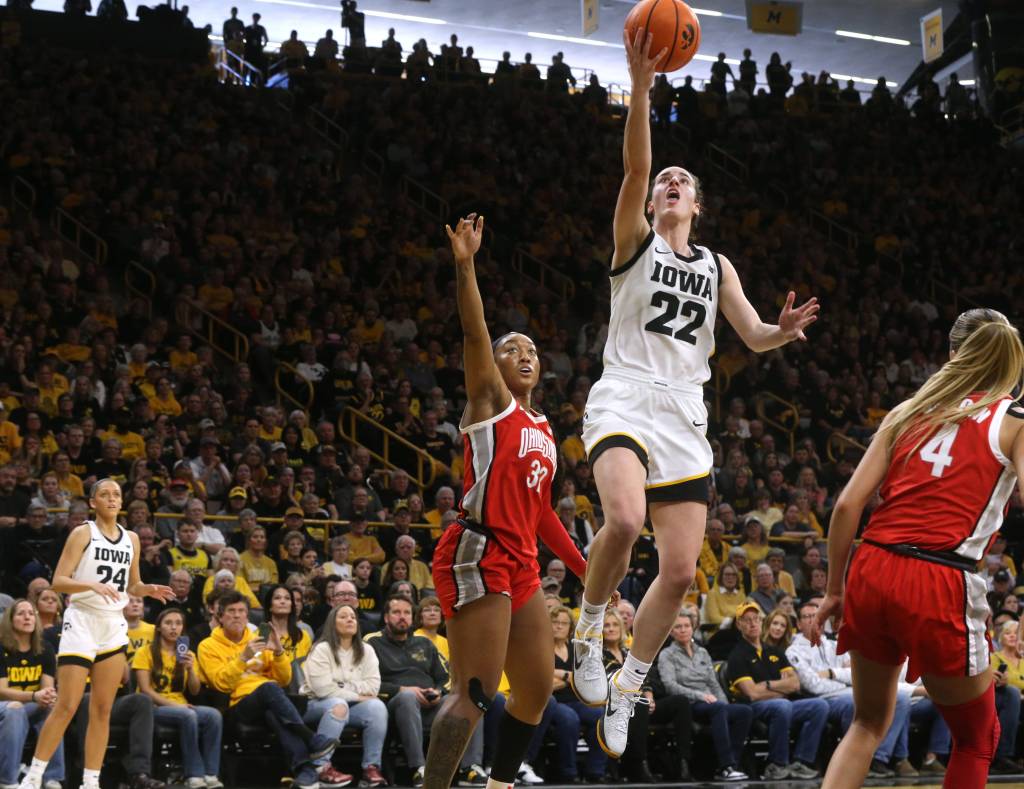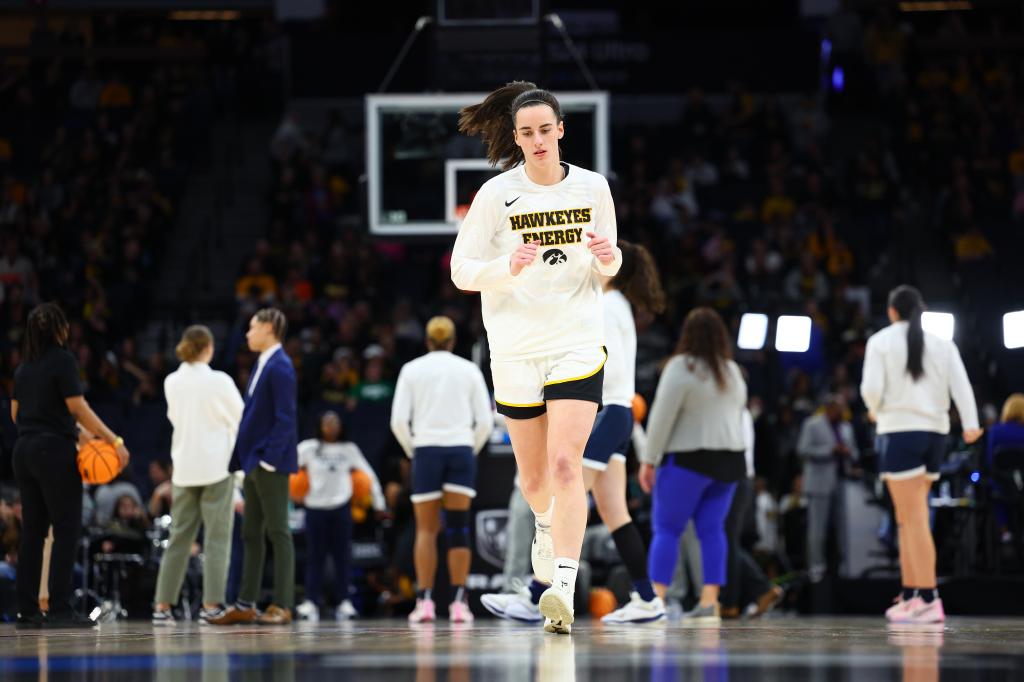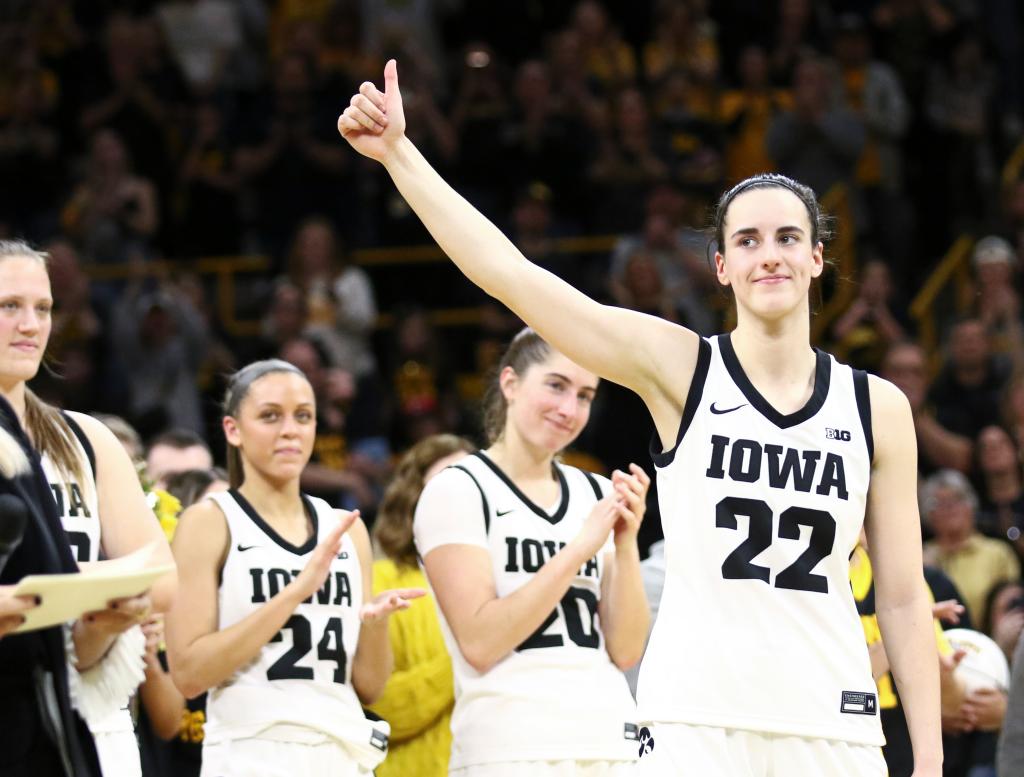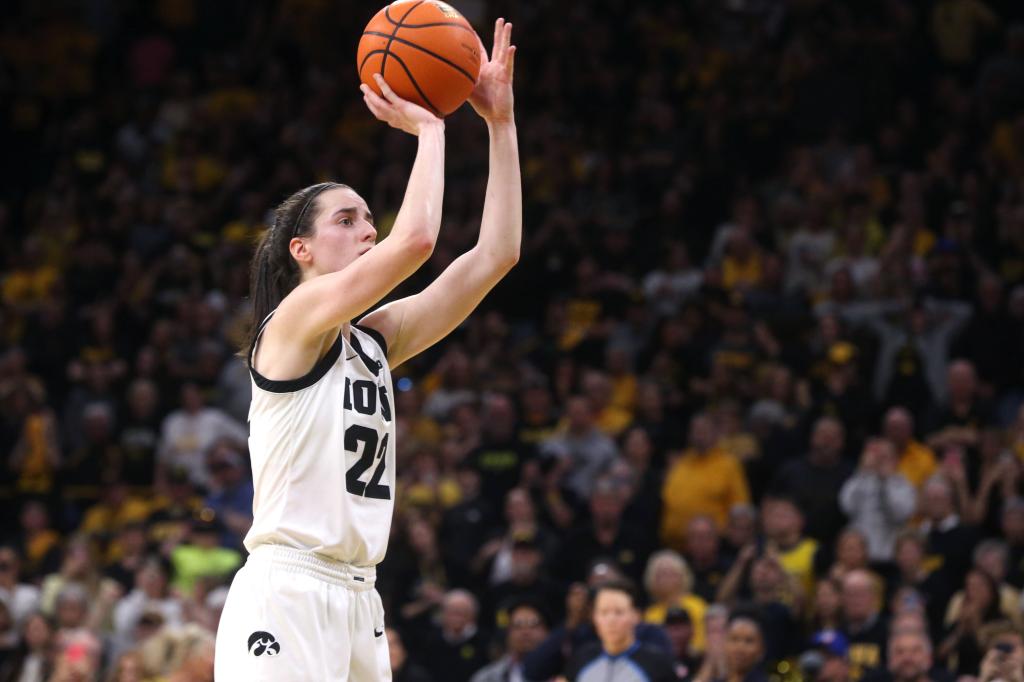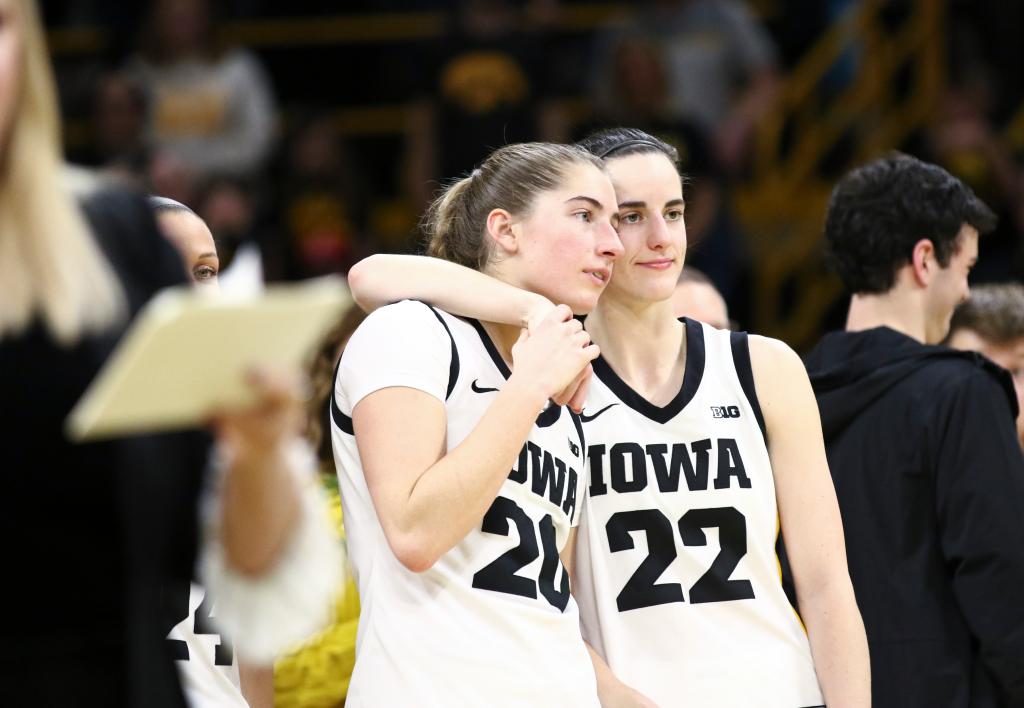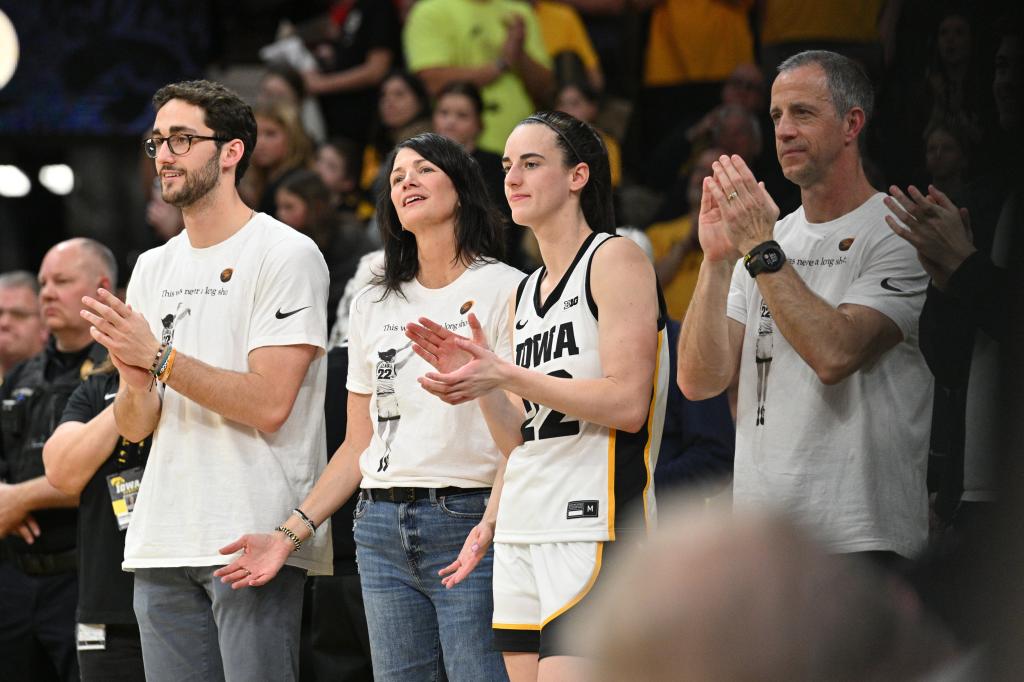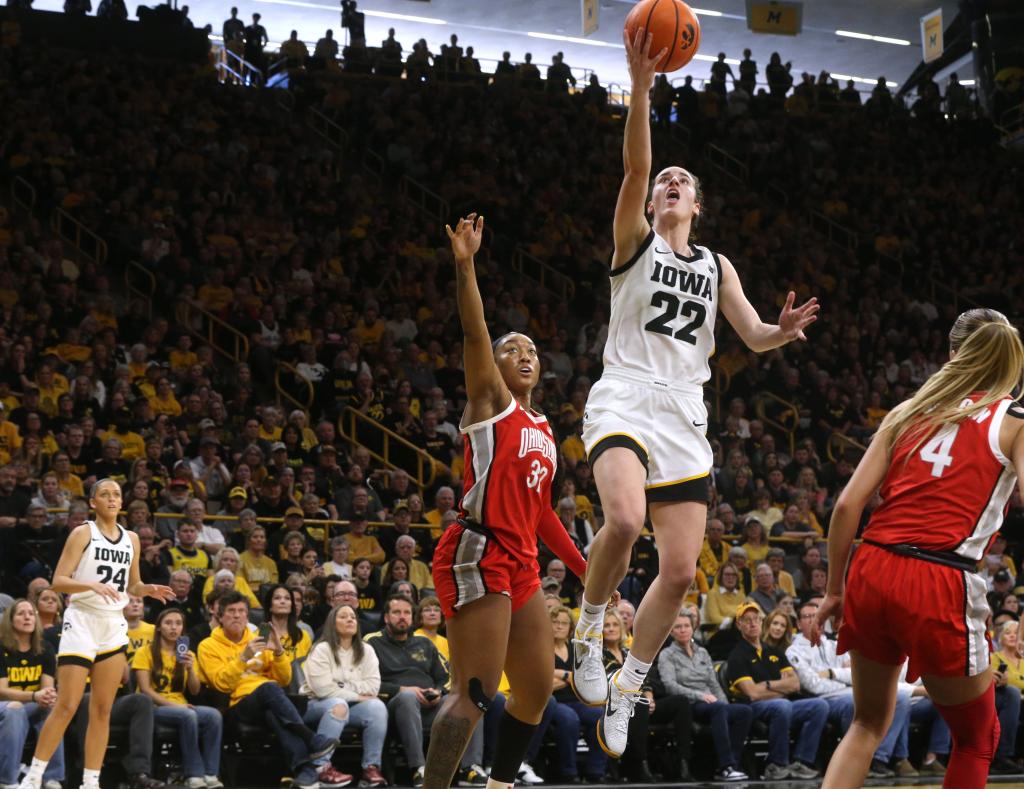MINNEAPOLIS — She was in middle school when college coaches began trekking to West Des Moines.
She traveled the country, weighing which incredible option would be best.
On Nov. 12, 2019, Caitlin Clark chose Iowa, eschewing power programs for a team which hadn’t reached the Final Four in nearly 27 years.
“This is the place that really all I’ve known all my life,” Clark said this week before scoring 24 points in Iowa’s 95-62 win over Penn State on Friday night in the Big Ten Tournament quarterfinals. “That was the main reason for coming to the University of Iowa. I wanted to play for my home state. I wanted to do something that really had never been done before.”
She did that, making Iowa the epicenter of college basketball, making Iowa cool.
She did it by leading the Hawkeyes to their first-ever national championship game, then becoming the all-time leading scorer in Division I history.
She’s done it in front of her large family, in front of a passionate fan base — based more than 200 miles away from the nearest major professional franchise — that considers her kin.
She has done it beside teammates she believes will be her “best friends for the rest of [her] life.”
She has vaulted women’s basketball to unprecedented popularity, blending artistry and audacity to make the impossible appear effortless.
She has made countless follow a sport they once mocked, selling out every seat in every building she enters.
“It’s so fun and so special what we’ve built here,” Clark said after Iowa’s Senior Day. “It kind of feels like you’re living in a little bit of delusion because this is just awesome.”
Clark could extend the ride another year, doing what so many college seniors wish they had.
It would be easy to understand.
She may never be more beloved.
She may never be more dominant.
She may never again play games that mean so much to millions.
It is the rare case in which stepping up in competition means stepping into a smaller spotlight.
Last year, Clark brought nearly 10 million viewers to the national title game.
Months later, the WNBA Finals attracted its largest viewership in 20 years, with an average of 728,000 viewers per game.
It is also the rare scenario in which turning pro doesn’t offer life-changing wealth.
Unlike when Zion Williamson left Duke after one unforgettable season to become the top pick in the NBA draft — he received a four-year, $44 million contract, accelerating his ability to later sign an extension worth as much as $231 million — Clark will earn $76,535 as a rookie in the WNBA.
Incentives and league-related marketing opportunities could add six figures to her salary, while earnings from her growing list of endorsements — including Nike, Gatorade and State Farm — would be comparable at Iowa in the NIL era.
So, why leave now?
Why not hold an extra swing at Iowa’s first national championship?
Why not soak up every available second of an experience that may never be surpassed?
For the same reason she started shooting logo 3-pointers as a teenager — to see what her ceiling can be.
“It was definitely a really hard decision and I think the biggest thing is I’m just ready for a new challenge,” Clark said this week. “I would’ve loved to have been able to do both. Make our fans happy. Make everyone else happy. But I feel this season has allowed me to have a lot of closure.”
It makes sense if you are the best college player in the country, aiming to be the best in the world.
If you are the type of competitor who cried after every loss as a child, who threw her younger brother into a wall during a basement basketball game that opened a gash in his head and required staples, who raced classmates to finish quizzes, who quit softball because she hated waiting for her turn to hit, who was an 11-year-old alpha on an all-boys soccer team.
“She was just a maniac out there,” said West Des Moines mayor Russ Trimble, whose son played with Clark. “You couldn’t not take note of her. She was all over the field, and she was so intense, so into the game, literally, yelling at the boys, telling them where to go and what to do. I remember saying to my wife, ‘Who is this girl?’
“It was unbelievable how hard she played and how much she wanted to win. Even as a little kid. It’s been ingrained in her from birth.”
Her father, Brent, was a four-sport athlete, who played basketball and baseball at Simpson College.
Her cousin, Audrey Faber, starred at Creighton.
Her brother, Blake, played football at Iowa State.
Clark was his annoying little sister, following him around, trying to keep pace with his friends, making his baseball coach hit her grounders because she wouldn’t watch practice from the bleachers.
“A lot of the competitiveness comes from being in a family of athletes,” said Kristin Meyer, Clark’s Dowling Catholic High School coach. “They talk about family gatherings, they were always competing in whatever they were doing. And she’s one of the younger cousins, so you want to hold your own. You better be able to compete or you’re gonna watch from the sidelines.”
When confronted with undefeated South Carolina in the Final Four, Clark scored 41 points in the upset.
When an opposing high school’s fan section screamed “over-rated” taunts, she responded with 42 points.
When she was left off Team USA’s U17 roster, a phenomenon found its footing.
“That was probably the first time in her life that she got a message that she wasn’t good enough,” Meyer said. “That was a turning point. There’s a lot of people who say they’re competitive, but you gotta be willing to put in the work. She loved competing with herself in practices and challenging herself.”
The greatest challenge awaits.
Numerous collegiate icons have turned pro — Taurasi, Breanna Stewart, Sabrina Ionescu, Candace Parker, etc. — and failed to radically alter the WNBA’s standing in the sports landscape.
Clark has the opportunity to elevate the league — with ratings, with respect — in a way that no player has since its inaugural 1997 season.
After Clark is selected by the Indiana Fever with the top pick in next month’s draft, she will be saddled with unenviable expectations.
She will be touted as a savior.
She will be asked to replicate the magic of the past four years against faster, stronger and taller defenders, against superior schemes, against more accomplished and experienced stars, fatigued by the hype and hysteria that follows the 22-year-old.
And that is the point.
That is why she must leave.
The decision was made long ago.
Only recently did she realize it.
“She needs the next challenge,” said Dickson Jensen, her AAU coach. “She wants to play against the best and with the best. She’s ready. She knows it in her heart. It’s time.”
